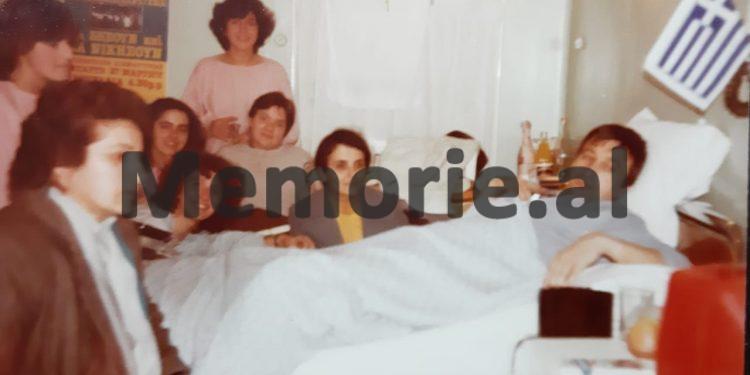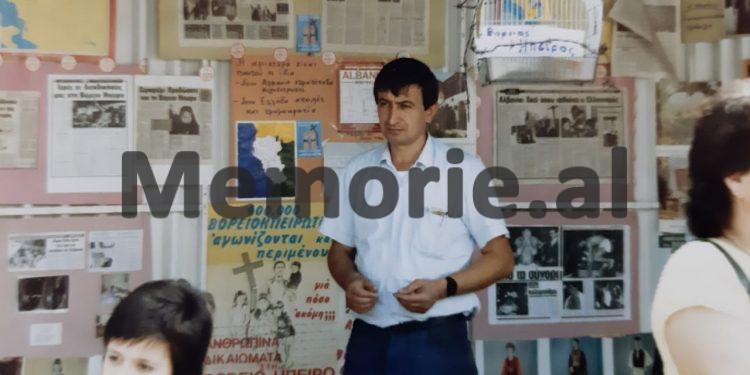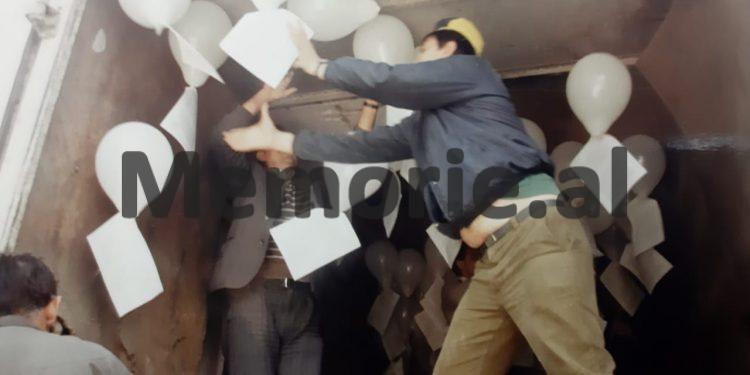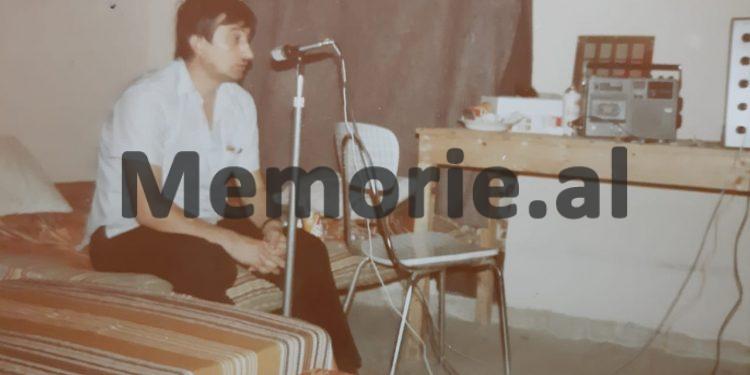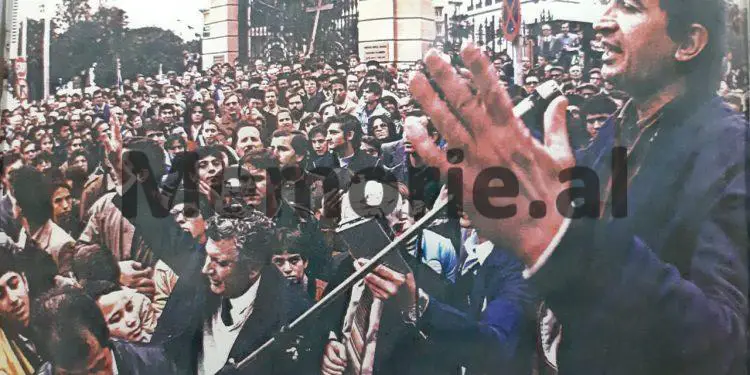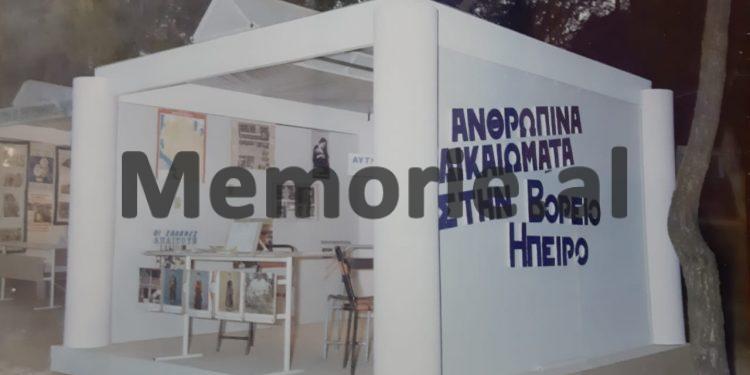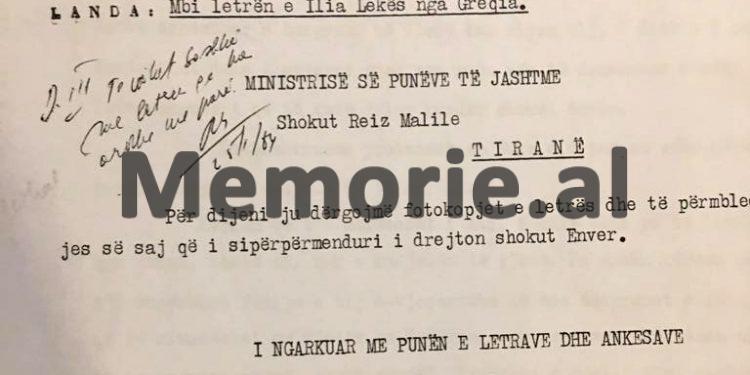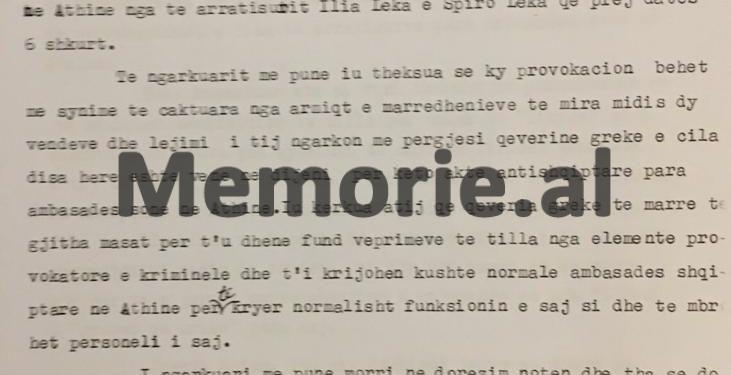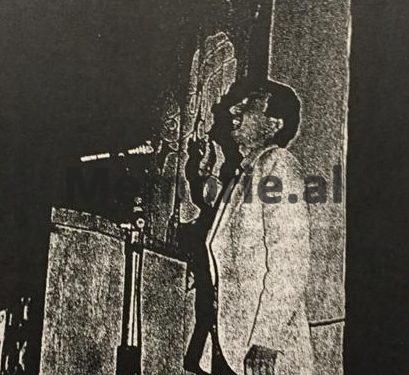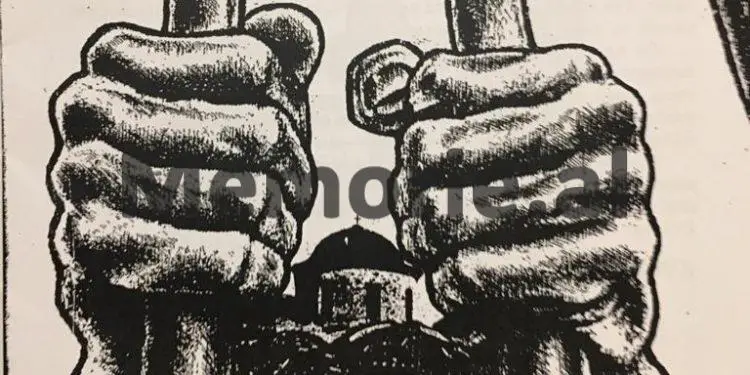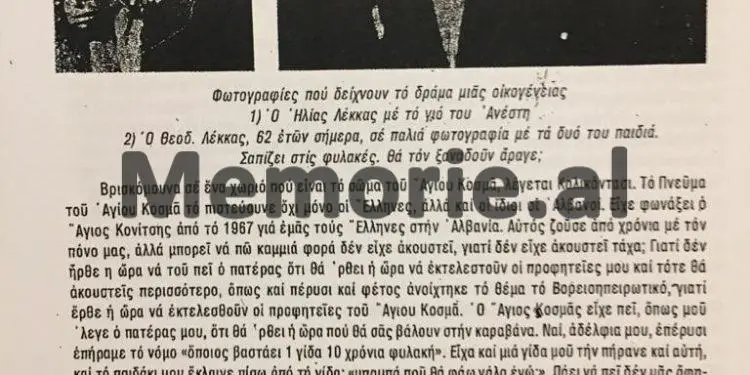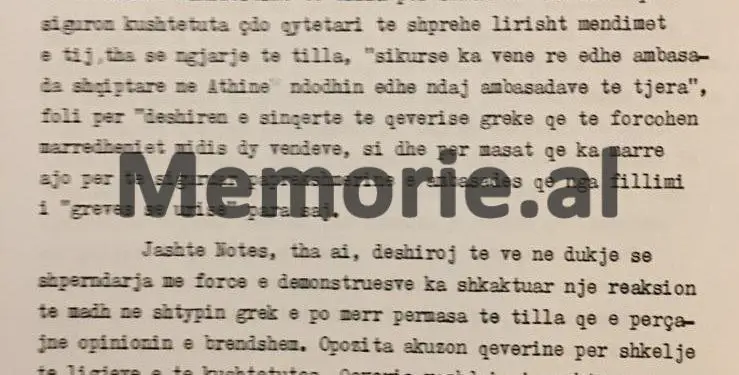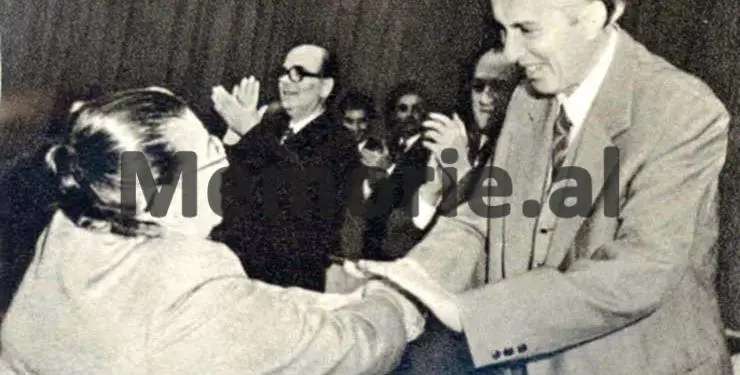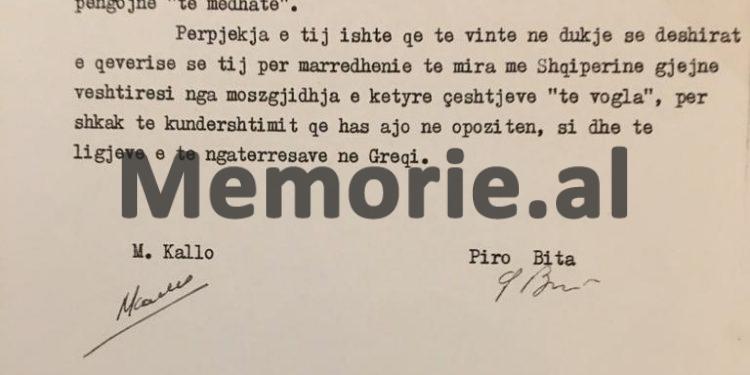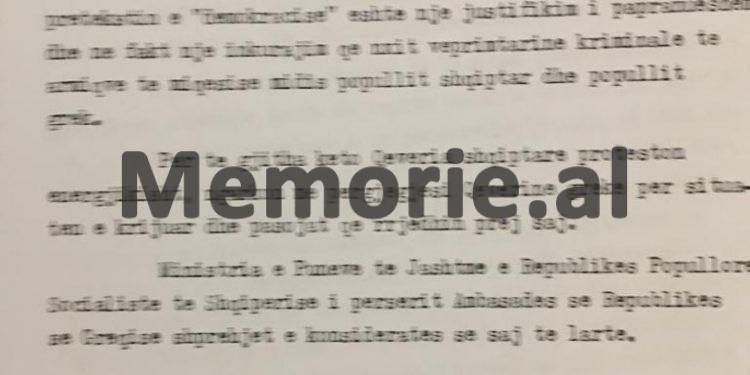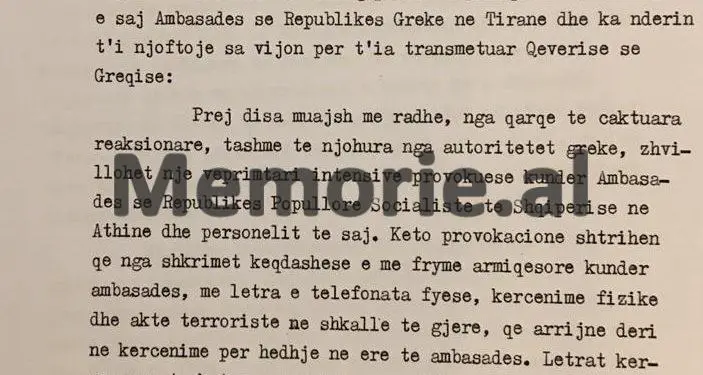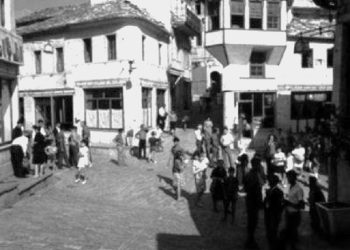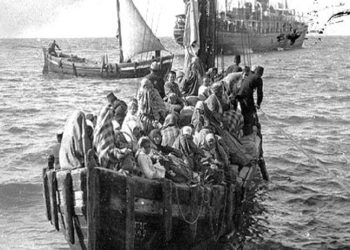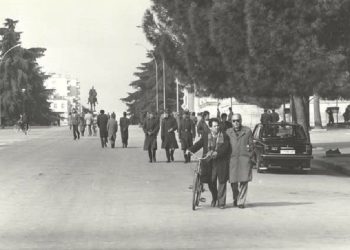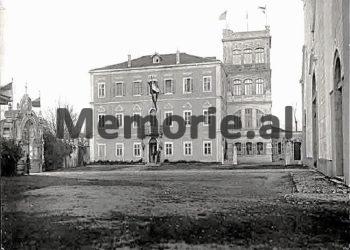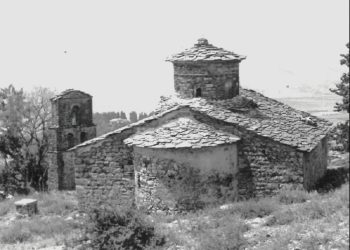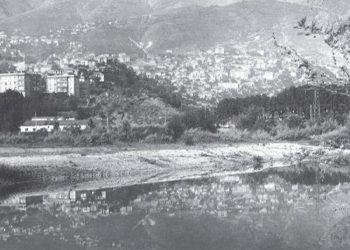Dashnor Kaloçi
Memorie.al publishes some archival documents extracted from the Archive of the Ministry of Foreign Affairs in Tirana and the Information Authority of the Files of the former State Security, which are part of a voluminous file which deals with the rare and unknown history of Ilia Lekë, originally from the village of Glinë in the Greek minority of Gjirokastra, whose family had been living in exile in Myzeqe villages since 1945, and his father, Theodhoriu, had been arrested since 1951 and were serving time in camps and prisons. accused of being a “Greek intelligence agent”.
Attempts by the State Security to recruit Ilian and then arrest him, and Ilias’ escape together with his brother Kriston and their uncle in Greece, where after some threatening letters that Ilia made to Enver Hoxha, Ramiz Alia, and Adil Çarçan, who was asked to get his father out of prison and his wife and son, to allow him to come to Greece, the three of them went on a hunger strike in front of the Albanian embassy in Athens, which lasted until 1984.
The strike sparked major diplomatic tensions between the two countries, as it sensitized not only the Greek parliament and government in Athens, but also the Greek press and some ultra-nationalist parties and Vorio-Epiriot chauvinist circles led by Metropolitan Sevastianos, who exploited it. for their interests, as well as Ilia Leka’s speeches in the European Parliament and the American Congress, for the violation of human rights in the communist regime in Albania, until they forced Enver Hoxha to come out and publicly declare: “I say responsibly to the people Greek brother that in the Albanian prisons there are only 46 citizens from the Greek minority and only 4 of them for political crimes ”, as well as Ramiz Alia to release Theodhori Leka from prison in 1989, allowing him to go to Greece forever.
“I was imprisoned without knowing anything. And we were forced to leave to escape from prisons and torture. So much for knowing. Now, as I wrote to you, I am telling you: Allow me, family. Don’t hold my 4-year-old son captive, don’t hold my 63-year-old father in prison by torturing him, don’t make me tell you, do inhumane acts. My father will die, I know, even if you get him out of jail, he doesn’t live more than 6 months. But let me and you and your Government know that my father’s death at the moment I find out, let it be a day at lunch, then you will be convinced of what I will do, but you will say that he made it clear to me on paper. I have told you and I will tell you as men openly. Delivering my family with me to wash the accounts. Then let the Greek government take it diplomatically because my father has been in prisons and internments since 1951. He didn’t see a white day. ”
This is stated, among other things, in a letter personally sent to Enver Hoxha, dated December 25, 1983, authored by an Albanian citizen named Ilia Theodhori Leka, originally from the village of Glinë in Gjirokastra and living in Kolonjë. of Lushnja, where he had lived as a family interned internally from 1945 to April 12, 1982, when he and his brother, Kristo Lekë, and their uncle were forced to flee Albania to Greece.
The letter in question addressed to Enver Hoxha, which is handwritten by the minority Ilia Leka, is an official document and part of a very voluminous file with the initials “Extremely Secret” issued by the Archive of the Ministry of Foreign Affairs of Albania and The Authority for Information of the Files of the former State Security, which is reflected in hundreds of typed or handwritten sheets, the whole story of Ilia Leka and his family.
Starting from the origin of the family from the village of Glina in the Greek minority in the district of Gjirokastra, where in 1945 two sons of the Leka family escaped, their internment in 1951, in the village of Savër in Lushnja and then in some villages of other in that area of Myzeqe, the State Security surveillance of Ilia Leka’s father, Theodhori, who was a shepherd in the hills around the Ardenica Monastery, the reports of State Security collaborators given to the operative Security workers who were following and monitoring Theodhori Lekë, their reports to the top bosses, the combinations and legends made to “dismantle his agency activity”, Theodore’s arrest in 1951, accused of being a “Greek intelligence agent and liaison with several persons and agents who they were fleeing from Albania to Greece and vice versa ”, serving his sentence in several Albanian prison camps , the attempt of the State Security since the 70’s to recruit his son, Ilia Lekë, his rejection and various provocations of the Security collaborators and the people introduced by him, the vicissitudes of Ilias with letters of complaint in high state and party instances or meetings with the heads of the courts and the prosecution, demanding the release of his father from prison as innocent, the arrest of Ilias’ uncle and the torture against him in the Internal Affairs Branch of Vlora, where he was forced to sign a statement about Ilian, as if he had spoken out against “popular power”, Ilias’ escape with his brother Christon and their uncle on April 12, 1982, leaving for Greece through the border villages of their homeland, the threatening letters that Ilia sent from Greece to Enver Hoxha, Ramiz Alia, Hekuran Isa, Adil Çarçan and Reiz Maliles, where he asked them to release his father from prison and stop torturing him, holding his 4-year-old son hostage and pressuring his wife to force him to divorce Ilian and remarry, but allowed them to come to Greece, Ilia Leka’s hunger strike with his brother and uncle in front of the Albanian embassy in Athens that lasted about three years sensitizing the public and Greek politics that made that issue the day of the Greek Parliament and the government of Athens , the commitment of the Athens police to protect the Albanian embassy for fear of Ilia Leka who had set up a tent in front of its main entrance, the secret daily correspondence with urgent telegrams of the Albanian ambassador to Athens, Xenophon Nushi, with the Ministry of Foreign Affairs in Tirana and personally , Enver Hoxha, Ramiz Alia, Adil Çarçanin, Hekuran Isain and Reiz Malile, keeping him informed about everything that was happening there with hunger strikers and Greek politicians and MPs who showed solidarity with the strikers and took part in protest rallies in front of the Albanian embassy, articles in major Greek newspapers regularly covering the event, and the reaction of some nationalist parties and the Metropolitan. Sevastianos urging the Greek government to resolve the issue as soon as possible and “the fate of the 400,000 Greek minorities suffering under Hoxha’s regime”, correspondence between the Albanian and Greek Foreign Ministries regarding the problem of Ilia Leka’s strike, etc, etc.
Along with all these that as we said a little above, are part of a voluminous file which is available in full Memorie. al and I will make it public starting from this article, in the coming days we will also be introduced to an interview Ilia Lekë’s exclusive long-lived family living in Athens, where he testifies to these events containing these archival documents and others that have not been reflected there. Since the hunger strike in front of the Albanian embassy in Athens, which shook the official relations between Albania and Greece and forced Enver Hoxha to come out publicly and declare: Albanians who are part of the Greek minority and only 4 of them are for political guilt “, the Greek press sensitized the strike of Ilia Lekë, who was invited and spoke at the European Parliament in Brussels and at the American Congress in Washington for violating it human rights from the dictatorial communist regime of Enver Hoxha, to the “dismemberment” of official Tirana in 1989, which forced Ilias’ father, Theodhori, to be released from prison and allow him to go to prison forever. Greece to his son, where he lived for many years after the overthrow of the communist regime, rejoicing at the arrival of the rest of the family had remained in Albania.
follows from the previous number
Greek press reports on Ilia Leka, Albania and the strike of three minorities of the Leka family, in front of the Albanian embassy in Athens
“Corfu’s Special Protocol, which recognizes the Hellenization of Northern Epirus.” (May 17, 1914).
International ratification of the Corfu Protocol and its acceptance by the Albanian government (June 23, 1914).
At the Committee on the Rights of the Greek and Albanian Issues, in London (January 1919), the Chairman of the Council, Pavlo Kambon, stated the following:
“It is necessary to provide the conference with the necessary tools to satisfy Greece’s old claims and to finally fulfill the work of self-determination of the peoples that the freedom-loving nations of Europe began a century ago.”
- The US Senate, through Senator Lots, decided that North Epirus, after Korça and Dodecanese, where the Greek element predominates, should be given to Greece by the conference, because they are an integral part of the Greek kingdom and 100,000 Muslims.
The southern region of Gjirokastra, Dropull, Pogon: Delvina, Himara, and part of Korça were all Greek and had Greek as their mother tongue. All Greek schools functioned regularly, and the inhabitants, almost all of them, spoke Greek. With the creation of the new Albanian state, 1944-1945, Enver Hoxha-Shehu closed all Greek schools in this Greek region, thus violating the well-known international decisions on the autonomy of the North Epirusians and the UN constitutional charter, for the self-determination of nations, despite the fact that since the Paris Peace Conferences (June 29, 1946 – end of October 1946), the North Epirus issue remains interdependent. At the Paris Conference in the summer of 1946, the then Foreign Minister of the BS, Molotov, had officially stated to the government of Caldari’s that Ministers “.
Greek press
The newspaper “Mesmivrini”, on February 16, publishes the article entitled: “Liberals for PASOK’s attitude towards the north-epiriots”.
It states: “How inhumane is the attitude of the Greek government towards the North Epirus fugitives, who went so far as to order their departure by MAT, from the entrance of the Albanian embassy,” the Liberal Party said in a statement…
The communiqué states
“The Liberal Party denounces to the Greek people this action of the PASOK government and emphasizes, once again, its continued indifference to the minority problems of the 400,000 northern Epiriots, whose suppression has been repeatedly noted by the Committee. of Human Rights ”.
The newspaper “Eleftheri Gnomi”, on February 16, 1984, published the article “Paragraphs”.
It reads: “The Liberals of Nikita and Hondrokuq took under the protection of the two northern Epiriots who are going on a hunger strike outside the Albanian embassy. They also issued a statement denouncing to the Greek people the fact that the police told the strikers to leave the embassy quietly.
The relevant paragraph of the communique is as follows:
“The Liberal Party denounces to the Greek people this action of the PASOK government and once again marks the continued indifference to this minority problem of 400,000 minorities.” But someone does not like this paragraph and, for this purpose, rushes to add in the same communiqué, exactly under it, the paragraph that you will read:
“The Liberal Party denounces this action by the Greek people, which once again marks the government’s continued indifference to the human rights of the 400,000 Greeks – a violation that has been consistently ascertained by the Human Rights Committee.”
Wonder: Nikita Hindrokuqi, which paraglider represents you first or second “Say we know…”?
Telegram “Top Secrets” of the Albanian Ambassador to Athens, Xenophon Nushi, sent to the Ministry of Foreign Affairs in Tirana, for Enver Hoxha, Ramiz Alia, Adil Çarçnin and Hekuran Isai.
DESIGNING FOR SECRETS
Nr. 4768 From Athens
Nr. 327 Date 7.2.1984
FOREIGN MINISTRY
The provocation of the fugitives continues. In front of the embassy, a tent has been set up where Ilia Leka and his uncle Spiro Leka must have spent the night.
They are now handing out leaflets to passers-by. Police have sent a bus with 10 police officers. It is possible that a demonstration will take place. There are now no more than 10 people.
(we saw these in the morning press)
Letter from the Ministry of Foreign Affairs of Albania to the Greek Embassy in Tirana
PEOPLE’S SOCIALIST REPUBLIC OF ALBANIA
MINISTRY OF FOREIGN WORKS P r o j e k t
Nr.
The Ministry of Foreign Affairs of the Socialist People’s Republic of Albania presents its compliments to the Embassy of the Hellenic Republic in Tirana and has the honor to inform them as follows to broadcast to the Government of Greece:
For several months now, certain reactionary activities have been carried out by certain reactionary circles, already known by the Greek authorities, against the Embassy of the Socialist People’s Republic of Albania in Athens and its staff. These provocations range from malicious and hostile writings against the embassy, with insulting letters and phone calls, large-scale physical threats, and acts of terrorism, to the uprooting of the embassy. The threatening letters of these provocateurs have even crossed the borders of Greece.
In addition, a shocking and fabricating propaganda campaign is being carried out by the chauvinist reactionary circles in various Greek newspapers and publications against the Albanian people and the Socialist People’s Republic of Albania.
EMBASSY OF THE GREEK REPUBLIC
T I R A N E
The Greek Ministry of Foreign Affairs has been informed of all the occasional provocations and documents have been handed over to it. Also, the Ministry of Foreign Affairs of Albania has not failed to draw the attention of the Greek Embassy in Tirana.
The Greek Ministry of Foreign Affairs has repeatedly promised that appropriate measures will be taken to protect the Albanian embassy and its staff, as well as the normal functioning of its activities. In the grade no. 460 dated 30 June 1983 of the Greek Embassy in Tirana, addressed to the Ministry of Foreign Affairs, in response to the Albanian note in Athens on 24 June 1983 states, inter alia:
“As for the security of the staff of the Albanian Embassy and the provision of its normal functioning, instructions have already been given to take the necessary measures.”
Despite these successive insurances by the Greek Government, the provocations against the Albanian Embassy in Athens have escalated even further. What is more serious is the fact that some of these provocations, such as that of February 6, 1984, were carried out with the knowledge and presence of the Greek public order.
There is no doubt that such serious and repetitive actions of certain circles that want to damage relations between the two countries, responsibly meet the Greek Government, which has not taken the necessary measures to end such a situation. abnormal in relations between states and contrary to international rules guaranteeing the inviolability of diplomatic missions and its personnel. The passive attitude of the Greek authorities under the pretext of “democracy” is an unacceptable justification and in fact an encouragement that encourages the criminal activity of the enemies of friendship between the Albanian people and the Greek people.
For all these, the Albanian Government protests vigorously burdens the Greek Government with responsibility for the situation created and the consequences that result from it.
The Ministry of Foreign Affairs of the People’s Socialist Republic of Albania reiterates to the Embassy of the Hellenic Republic the expressions of its highest consideration.
Tirana, February 1984
Letter from the Ministry of Foreign Affairs to the Central Committee
Reference
On February 13, 1984, Comrade Piro Bita summoned the charge d’affaires a.i. of the Greek embassy, N. Krisojellos, to whom he submitted our note of protest regarding the provocation in front of our embassy in Athens by the fugitives Ilia Leka and Spiro Leka since February 6th.
The charge d’affaires stressed that this provocation is carried out with certain intentions by the enemies of good relations between the two countries and its permission burdens the Greek government, which has been repeatedly informed of these anti-Albanian acts in front of our embassy in Athens. It was demanded that the Greek government take all measures to end such actions by provocative and criminal elements and to create normal conditions for the Albanian embassy in Athens to perform its function normally and to protect the staff. Hers.
The charge d’affaires took note of the note and said he would immediately notify his government. He added that the Greek authorities will surely take measures to ensure the normal functioning of the Albanian embassy and tried to justify the anti-Albanian actions with the freedom that exists in Greece.
Tirana on February 14, 1984
I n f o r m a c i o n
On a meeting with the Ambassador of Greece (February 22, 1984)
Greek Ambassador A. Papasliotis requested a meeting and was received by Comrade Mihal Kallo. He submitted the Verbal Notice of the Embassy in response to our Note dated 13.02.1984 regarding the provocations of some fugitives in front of our embassy in Athens.
Commenting on it, he stressed the impossibility of banning such demonstrations due to the “freedom” provided by the constitution to every citizen to freely express his views, saying that such events, as the Albanian embassy in Athens has noted, It also applies to other embassies, “he said.”
Outside of the Grade, he said, I would like to point out that the violent dispersal of the demonstrators has provoked a strong reaction in the Greek press, and is taking on such proportions that it divides internal opinion. The opposition accuses the government of violating laws and the constitution. The government continued, it is for the further development of our relations, but despite its measures, it remains a problem of these people’s demands for their families.
A year ago, at her request and to avoid such events, I asked for some information about the family members of Ilia Leka, etc., but I had no answer. In order to silence them, especially the Greek public, which supports them and sees this as a humanitarian issue, it would be good to have some answers (the ambassador mentioned the names of 8 people).
When we told him that we have given the answer to this question for years, that they are criminals and enemies and we do not deal with them, that they are Albanian citizens and our state has its own laws and rules, he said that this answer is entirely from the logical and legal side, but it should be seen as a purely humanitarian issue, as well as because the Greek government cannot be justified in front of the public and also because they are Greeks of nationality and put pressure on it by all means.
He continued: there are some problems in this category that are “very small”, “a drop of water in the ocean”, which I have talked about many times over the past two years, but which are not being resolved. This becomes an obstacle for relations to move forward because the opposition uses them to prevent any step taken by the government. For example, it uses the case of 20-30 Greeks imprisoned here and the embassy is not allowed to meet them and give them a cigarette butt, writes about the number of packages that are sent to Albania and returned, speaks for those who do not receive news about people and their relatives. By not giving us an answer, they are addressing the press, the opposition, various internal and external organizations, which are making a big fuss against Albania, which in recent days has taken on enormous proportions by talking about being big things. of non-existent. Our task, the ambassador said, is to resolve these “very small” things in favor of good relations between the two countries. But while we value these as issues that hinder relationships that, if resolved, create the conditions to resolve even major issues, you think we should start with the big issue.
I reply to him that it is not these “small issues” that have hindered the better development of relations, but the still validity of the “law of war” creates provocative conditions for the enemies of good relations between the countries, for which we have sought to remove it precisely to their advantage and interest, which depends precisely on the Greek government, which has inherited for reasons known to such absurdity. We, he said, have no objection to you removing the “law of war”, but we cannot say when it will be done, also because of the favorable atmosphere we need to create on this issue. That is why both sides must make efforts to get closer to our positions.
Regarding his grade, we told the ambassador that we appreciate the wishes of the Greek government for good relations between the two countries, but, as stated in the Note of our Government, the activity of some criminals who fled Albania, as well as the forces that plot them in Greece and abroad, does not match the wishes and interests of both parties. We told him that the provocateurs do not find the force of justification in the constitution and Greek laws and these are not the subject of our Note.
We protested against the anti-Albanian activity of the provocateurs and the forces that organize them and pointed out that tolerating this activity helps them to act in this way. The Greek government knows better what these forces are and what their intentions are, and it is up to them to take action to end the situation.
The ambassador asked if he should consider our answer as final that we will give notifications to the family of the fugitive Leka. We also told him that we had explained to the Greek government in a timely manner that this was our response.
The Ambassador said that his government would not welcome this response because it would put other difficulties on those who exploit these events, as we said above. He tried to explain that every step taken by the Foreign Minister is hindered by the interpellations and opposition of the opposition in parliament, that in Greece political life develops differently and more confusingly, that he himself considers himself the most unfortunate ambassador in Tirana, for the reason that these “small” issues prevent it from carrying out the most important tasks to advance relations, etc., and that it cannot predict how the events will unfold with the fugitives from Albania, which have already formed an opinion in their favor and are trying to get Athens on the road.
We told him that we do not believe that these provocateurs have the power to “get Athens out on the streets”, nor to determine the relationship between our two countries and that it is strong and other reasons that create these situations, which they know well, and we have told them openly. We also told them that if it is true that they are worried in Greece about the families of the two fugitives, about whom they themselves are not worried, return them to Albania, as we proposed to you at the beginning, and let them see the families themselves. relatives. We stressed that these are not purely humanitarian issues, as he presents them, but hostile policies against our two peoples and the relations between them.
We also told him that some consular issues he talked about (mentioned the Greek family Konomi, etc.) have been resolved, others are under study. We mentioned our proposals known for a series of agreements that advance the relations between the two countries, etc. He insisted that “small problems” that hinder the big ones.
His attempt was to point out that his government’s wishes for good relations with Albania find it difficult not to resolve these “minor” issues due to the opposition it encounters in the opposition, as well as the laws and entanglements in Greece.Memorie.al
Piro Bita
Follows tomorrow




